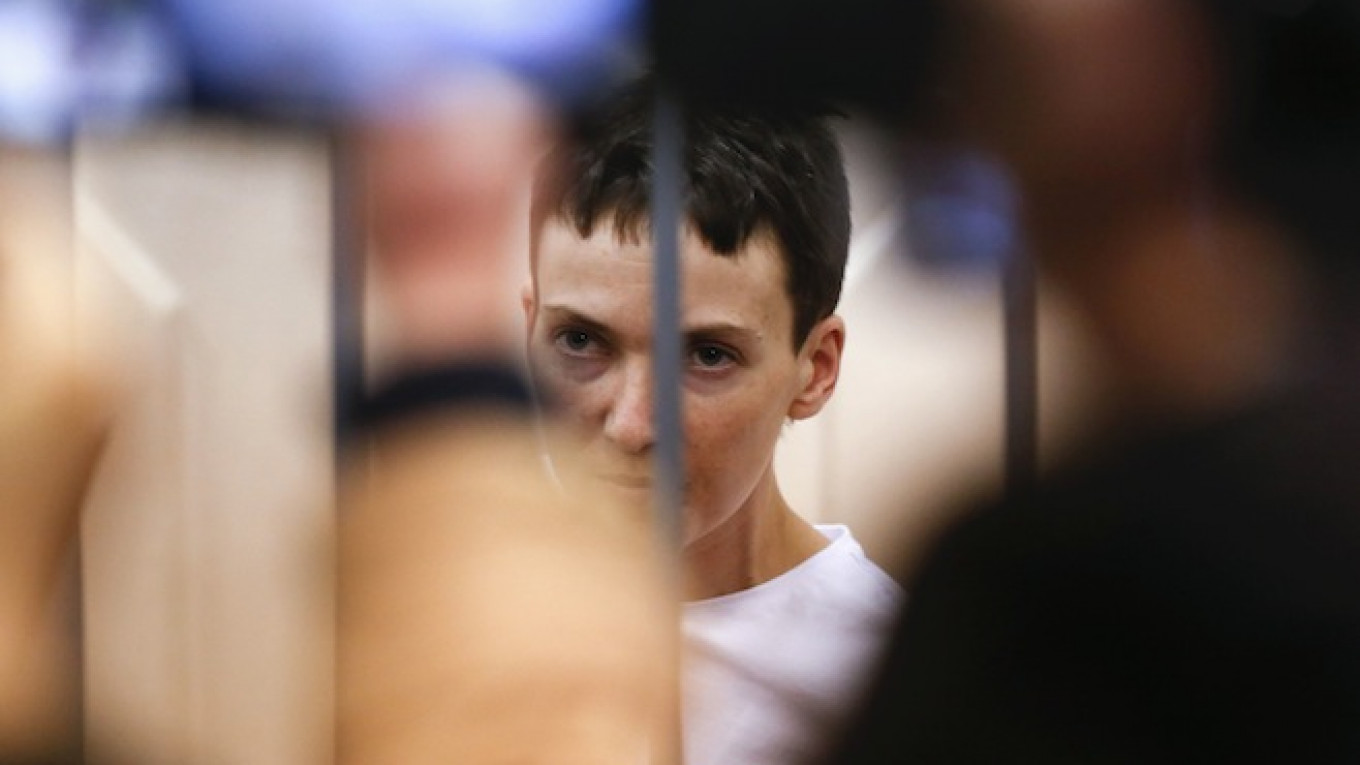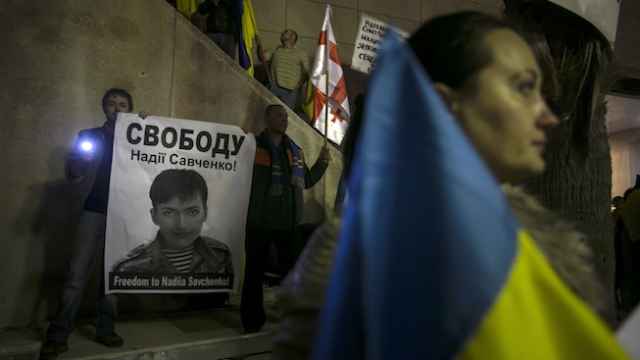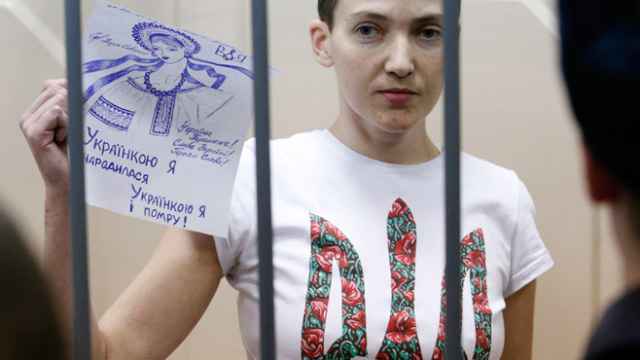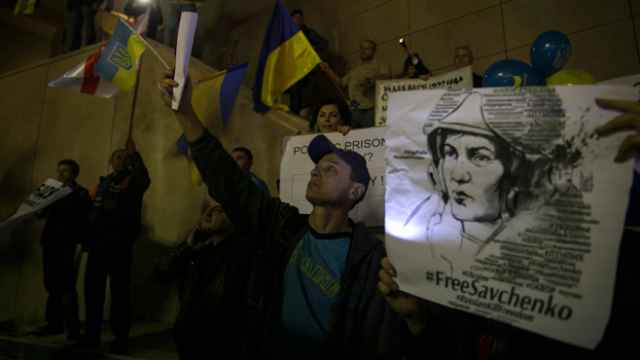Emerging from all-night talks on Thursday, Ukrainian President Petro Poroshenko said Ukrainian military pilot Nadezhda Savchenko would be released from a Russian prison soon.
The fact that he singled out the 33-year-old in a deal that should end fighting in a conflict in east Ukraine, which has killed more than 5,000 people, underlined how important Savchenko, who was captured by pro-Russian forces and handed over to Russia, has become.
During nearly eight months in Russian prison, where she is on hunger strike and being held on charges of aiding the killing of two Russian journalists in east Ukraine, Savchenko has become a national hero, a symbol of resistance to Russian aggression.
She won a seat in parliament in October in absentia and was named to the delegation to the Parliamentary Assembly of the Council of Europe.
"I raised the issue of the release of Nadezhda Savchenko, and I was informed that it should be done soon after the medical examination and the preliminary findings of the investigation are finalized," Poroshenko told journalists in Minsk where he agreed with leaders from Russia, France and Germany a cease-fire for east Ukraine.
"I asked it to be done immediately, and my appeal was supported by the French president and German chancellor. It was our joint position."
Savchenko's Russian defense lawyer, Mark Feigin, said it was too early to celebrate. But a quick release may save the woman who has lost some 17 kilograms in a two month protest at what she calls absurd and political charges.
Russia's Investigative Committee said she had provided the coordinates for two Russian journalists who were killed by a mortar attack in June in the rebel-held Luhansk region. She faces 20 years in jail.
Savchenko says she is not guilty and was spirited out of Ukraine illegally by the rebels who blindfolded her and handed over to Russian intelligence operatives.
A Moscow court this week extended her arrest for three months until May 13.
The Kremlin, which denies influencing the courts in Russia, did not immediately respond to a request for comment. Putin said in December it was up to the court to decide her fate.
Vera Savchenko described how her older sister, who served six months in Iraq in 2003-04, was rapidly fading away.
"She was always twice my size, now she is thinner than me," Vera Savchenko, said outside of Moscow's infamous Matrosskaya Tishina prison where she saw her sister for an hour this month.
Savchenko drinks two liters of warm water a day and is drip-fed glucose, her lawyers and family said, adding she needs a lot of rest but reads books in her cell, which has its own shower.
Hunger Strike
Russia denies military involvement in east Ukraine where violence erupted mid-April following Russia's largely bloodless annexation of Crimea from Kiev last March.
Vera Savchenko, 32, said her sister quit the army after more than a decade in disgust at the Ukrainian authorities' handling of Russia's moves in the peninsula but then joined the volunteer Aidar battalion, just days before the June battle.
"The politicians, the army just gave Crimea away, nobody said a word," she said. "And then they wanted to take away the east and the army again was idle. I was telling Nadya [Nadezhda] 'Why is your army not doing anything?' and she wanted to go."
A day-long battle began near the town of Schastye in east Ukraine on June 17. Savchenko emerged days later under arrest in the Russian city of Voronezh.
Russia's Investigative Committee, which answers directly to President Vladimir Putin, says Savchenko crossed into Russia as a refugee.
Her defense lawyers argue she could not have given the coordinates for the mortar attack as she was already in custody. They say mobile operator data provided by Ukraine's state security service showed Savchenko and the two Russians had never crossed each other's paths.
The Thursday deal envisages an "all for all" prisoner exchange and Feigin said Savchenko was on Kiev's list.
"She is a hostage of Vladimir Putin's game to pile pressure on Ukraine." Feigin said. "It's too early to celebrate before there is a statement from the Russian side."
A Message from The Moscow Times:
Dear readers,
We are facing unprecedented challenges. Russia's Prosecutor General's Office has designated The Moscow Times as an "undesirable" organization, criminalizing our work and putting our staff at risk of prosecution. This follows our earlier unjust labeling as a "foreign agent."
These actions are direct attempts to silence independent journalism in Russia. The authorities claim our work "discredits the decisions of the Russian leadership." We see things differently: we strive to provide accurate, unbiased reporting on Russia.
We, the journalists of The Moscow Times, refuse to be silenced. But to continue our work, we need your help.
Your support, no matter how small, makes a world of difference. If you can, please support us monthly starting from just $2. It's quick to set up, and every contribution makes a significant impact.
By supporting The Moscow Times, you're defending open, independent journalism in the face of repression. Thank you for standing with us.
Remind me later.






